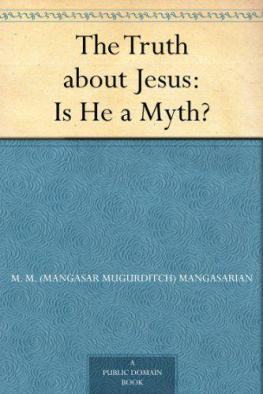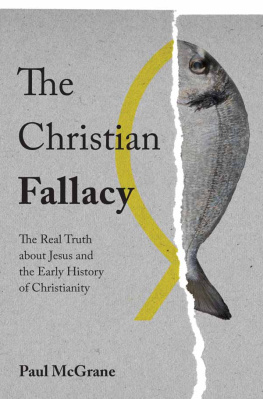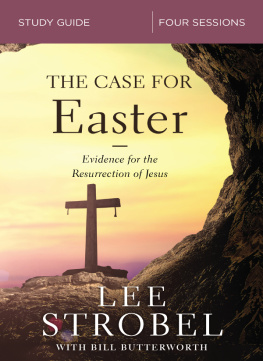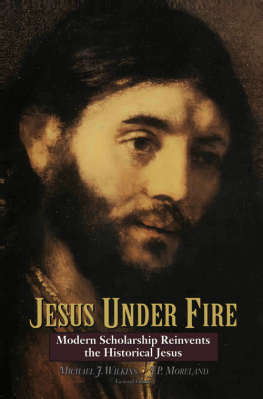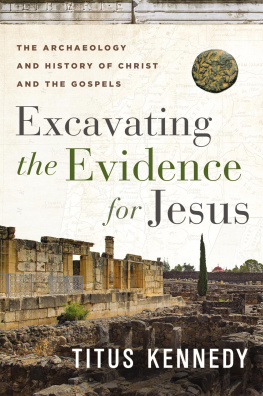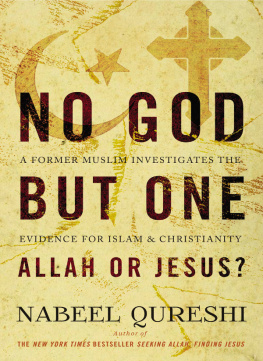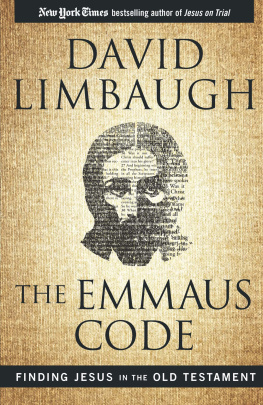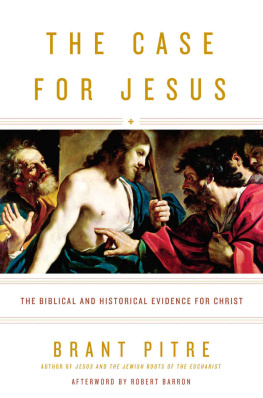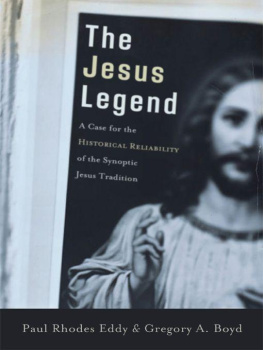CONTENTS
PART I
A PARABLE IN CONFIDENCE IS JESUS A MYTH? THE PROBLEM STATED THE CHRISTIAN DOCUMENTS VIRGIN BIRTHS THE ORIGIN OF THE CROSS SILENCE OF CONTEMPORARY WRITERS THE STORY OF JESUS A RELIGIOUS DRAMA THE JESUS OF PAUL NOT THE JESUS OF THE GOSPELS IS CHRISTIANITY REAL?
PART II
IS THE WORLD INDEBTED TO CHRISTIANITY?
PAGANISM AND CHRISTIANITY, OR CHRISTIANITY NOT SUITED TO WESTERN RACES
PART III
SOME MODERN OPINIONS OF JESUS A RHETORICAL JESUS "WE OWE EVERYTHING TO JESUS" A LIBERAL JEW PRAISES JESUS
APPENDIXREPLIES TO CLERICAL CRITICS
By education most have been misled,
So they believe because they were so bred;
The priest continues what the nurse began,
And thus the child imposes on the man .
DRYDEN.
PREFACE
The following work offers in book form the series of studies on the question of the historicity of Jesus, presented from time to time before the Independent Religious Society in Orchestra Hall. No effort has been made to change the manner of the spoken, into the more regular form of the written, word.
M. M. MANGASARIAN.
ORCHESTRA HALL CHICAGO
[Illustration: Picture in Herculaneum, of the Days of Pompeii, Showing
Cupid Crowned with a Cross.]
PART I.
A PARABLE
I am today twenty-five hundred years old. I have been dead for nearly as many years. My place of birth was Athens; my grave was not far from those of Xenophon and Plato, within view of the white glory of Athens and the shimmering waters of the Aegean sea.
After sleeping in my grave for many centuries I awoke suddenlyI cannot tell how nor whyand was transported by a force beyond my control to this new day and this new city. I arrived here at daybreak, when the sky was still dull and drowsy. As I approached the city I heard bells ringing, and a little later I found the streets astir with throngs of well dressed people in family groups wending their way hither and thither. Evidently they were not going to work, for they were accompanied by their children in their best clothes, and a pleasant expression was upon their faces.
"This must be a day of festival and worship, devoted to one of their gods," I murmured to myself.
Looking about me I saw a gentleman in a neat black dress, smiling, and his hand extended to me with great cordiality. He must have realized I was a stranger and wished to tender his hospitality to me. I accepted it gratefully. I clasped his hand. He pressed mine. We gazed for a moment silently into each other's eyes. He understood my bewilderment amid my novel surroundings, and offered to enlighten me. He explained to me the ringing of the bells and the meaning of the holiday crowds moving in the streets. It was SundaySunday before Christmas, and the people were going to "the House of God."
"Of course you are going there, too," I said to my friendly guide.
"Yes," he answered, "I conduct the worship. I am a priest."
"A priest of Apollo?" I interrogated.
"No, no," he replied, raising his hand to command silence, "Apollo is not a god; he was only an idol."
"An idol?" I whispered, taken by surprise.
"I perceive you are a Greek," he said to me, "and the Greeks," he continued, "notwithstanding their distinguished accomplishments, were an idolatrous people. They worshipped gods that did not exist. They built temples to divinities which were merely empty namesempty names," he repeated. "Apollo and Atheneand the entire Olympian lot were no more than inventions of the fancy."
"But the Greeks loved their gods," I protested, my heart clamoring in my breast.
"They were not gods, they were idols, and the difference between a god and an idol is this: an idol is a thing; God is a living being. When you cannot prove the existence of your god, when you have never seen him, nor heard his voice, nor touched himwhen you have nothing provable about him, he is an idol. Have you seen Apollo? Have you heard him? Have you touched him?"
"No," I said, in a low voice.
"Do you know of any one who has?"
I had to admit that I did not.
"He was an idol, then, and not a god."
"But many of us Greeks," I said, "have felt Apollo in our hearts and have been inspired by him."
"You imagine you have," returned my guide. "If he were really divine he would be living to this day."
"Is he, then, dead?" I asked.
"He never lived; and for the last two thousand years or more his temple has been a heap of ruins."
I wept to hear that Apollo, the god of light and music, was no morethat his fair temple had fallen into ruins and the fire upon his altar had been extinguished; then, wiping a tear from my eyes, I said, "Oh, but our gods were fair and beautiful; our religion was rich and picturesque. It made the Greeks a nation of poets, orators, artists, warriors, thinkers. It made Athens a city of light; it created the beautiful, the true, the goodyes, our religion was divine."
"It had only one fault," interrupted my guide.
"What was that?" I inquired, without knowing what his answer would be.
"It was not true."
"But I still believe in Apollo," I exclaimed; "he is not dead, I know he is alive."
"Prove it," he said to me; then, pausing for a moment, "if you produce him," he said, "we shall all fall down and worship him. Produce Apollo and he shall be our god."
"Produce him!" I whispered to myself. "What blasphemy!" Then, taking heart, I told my guide how more than once I had felt Apollo's radiant presence in my heart, and told him of the immortal lines of Homer concerning the divine Apollo. "Do you doubt Homer?" I said to him; "Homer, the inspired bard? Homer, whose inkwell was as big as the sea; whose imperishable page was Time? Homer, whose every word was a drop of light?" Then I proceeded to quote from Homer's Iliad , the Greek Bible, worshipped by all the Hellenes as the rarest Manuscript between heaven and earth. I quoted his description of Apollo, than whose lyre nothing is more musical, than whose speech even honey is not sweeter. I recited how his mother went from town to town to select a worthy place to give birth to the young god, son of Zeus, the Supreme Being, and how he was born and cradled amid the ministrations of all the goddesses, who bathed him in the running stream and fed him with nectar and ambrosia from Olympus. Then I recited the lines which picture Apollo bursting his bands, leaping forth from his cradle, and spreading his wings like a swan, soaring sunward, declaring that he had come to announce to mortals the will of God. "Is it possible," I asked, "that all this is pure fabrication, a fantasy of the brain, as unsubstantial as the air? No, no, Apollo is not an idol. He is a god, and the son of a god. The whole Greek world will bear me witness that I am telling the truth." Then I looked at my guide to see what impression this outburst of sincere enthusiasm had produced upon him, and I saw a cold smile upon his lips that cut me to the heart. It seemed as if he wished to say to me, "You poor deluded pagan! You are not intelligent enough to know that Homer was only a mortal after all, and that he was writing a play in which he manufactured the gods of whom he sangthat these gods existed only in his imagination, and that today they are as dead as is their inventorthe poet."
By this time we stood at the entrance of a large edifice which my guide said was "the House of God." As we walked in I saw innumerable little lights blinking and winking all over the spacious interior. There were, besides, pictures, altars and images all around me. The air was heavy with incense; a number of men in gorgeous vestments were passing to and fro, bowing and kneeling before the various lights and images. The audience was upon its knees enveloped in silencea silence so solemn that it awed me. Observing my anxiety to understand the meaning of all this, my guide took me aside and in a whisper told me that the people were celebrating the anniversary of the birthday of their beautiful SaviorJesus, the Son of God.

